Intel Announces Cascade Lake: Up to 56 Cores and Optane Persistent Memory DIMMs
Cascade Lake Xeon Platinum, Gold and Silver
Intel's new mainstream Xeon processors come as an iterative update to its Purley lineup and leverages the same Skylake microarchitecture as its predecessor, but Intel claims the new chips offer, on average, a 30% gen-on-gen performance boost in real-world workloads. Comparing Intel's Cascade Lake to the previous-gen models, the company offers up to 25% more cores at the same price points.
Cascade Lake also represents Intel's first data center processors with in-silicon mitigations for the notorious Meltdown and Spectre vulnerabilities. The existing patches result in reduced performance that varies based on workload, but newer mitigations baked directly into the processors should help reduce the impact.
Cascade Lake features many of the same fundamental design elements of the Xeon Scalable lineup, like a 28-core ceiling, up to 38.5 MB of L3 cache, the new UPI (Ultra Path Interface), up to six memory channels, AVX-512 support, and up to 48 PCIe lanes. These processors drop into the same socket as the existing generation of Purley chips.
Intel's most notable advancements come on both the process and memory support front. Intel boosted memory support from DDR4-2666 to DDR4-2933 and doubled capacity up to 1.5TB of memory per chip. The company has moved forward to the 14nm++ process. Intel says the updated process allowed it to improve frequencies, power consumption, and institute targeted improvements to critical speed paths on the die.
Intel's new DL Boost suite adds support for multiple new AI features, which the company claims makes it the only CPU specifically optimized for AI workloads. Overall, Intel claims these technologies provide a 14X performance increase in AI inference workloads. Intel also added support for new VNNI (Vector Neural Network Instructions) that optimize instructions for smaller data types commonly used in machine learning and inference. VNNI instructions fuse three instructions together to boost int8 (VPDPBUSD) performance and fuse two instructions to boost int16 (VPDPWSSD) performance. These AVX-512 instructions will still operate within the normal AVX-512 voltage/frequency curve during the operations.
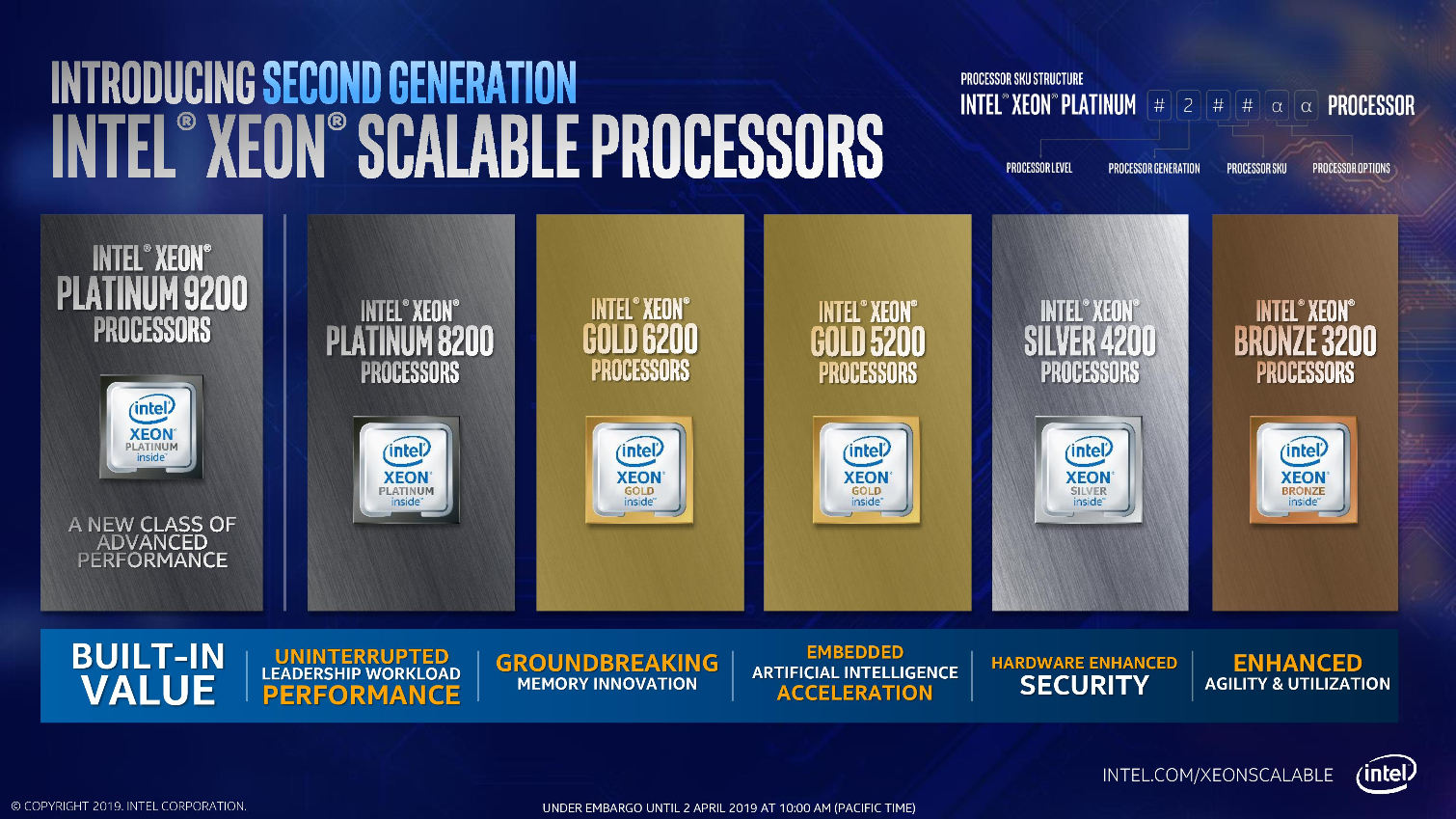
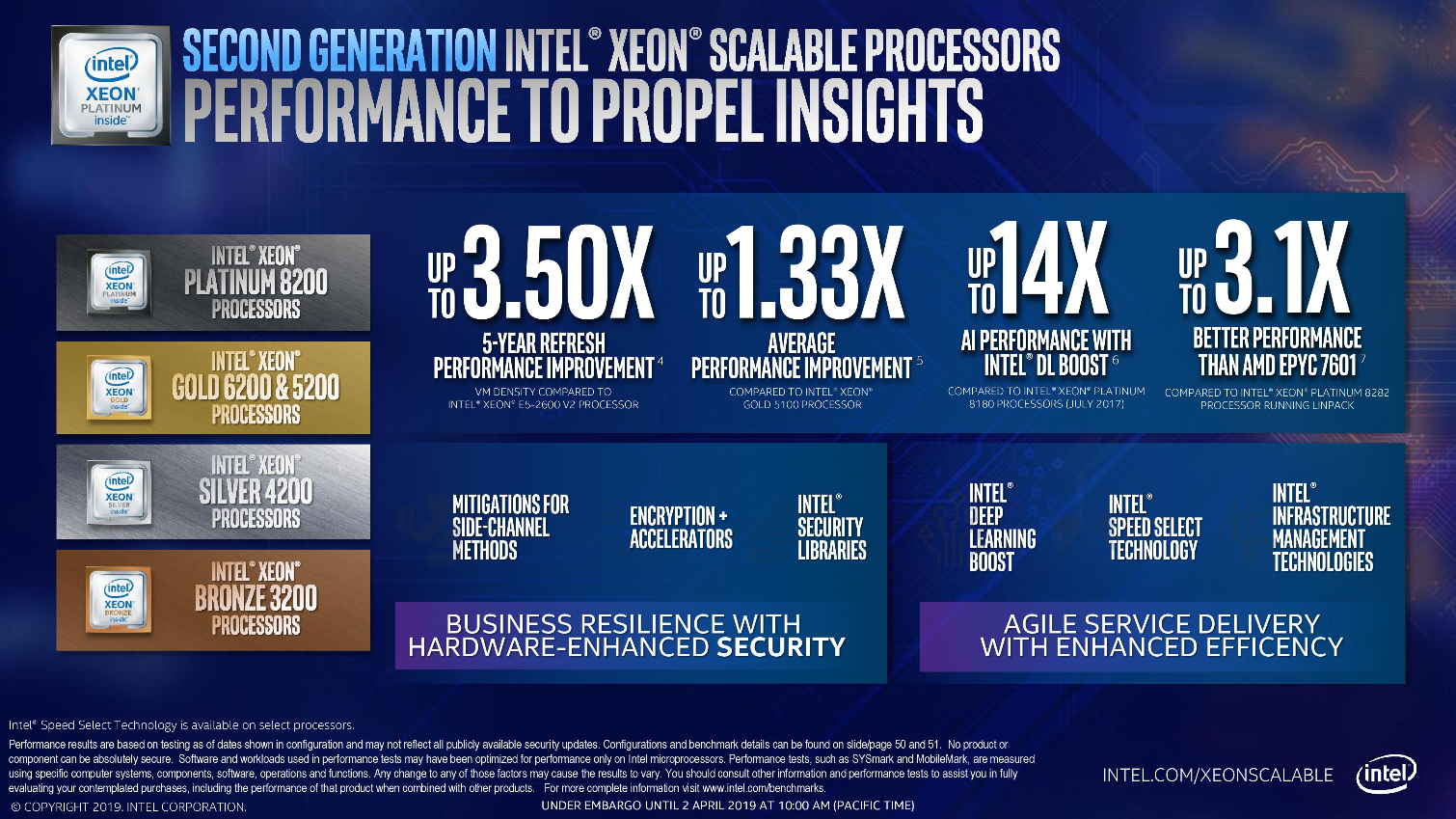
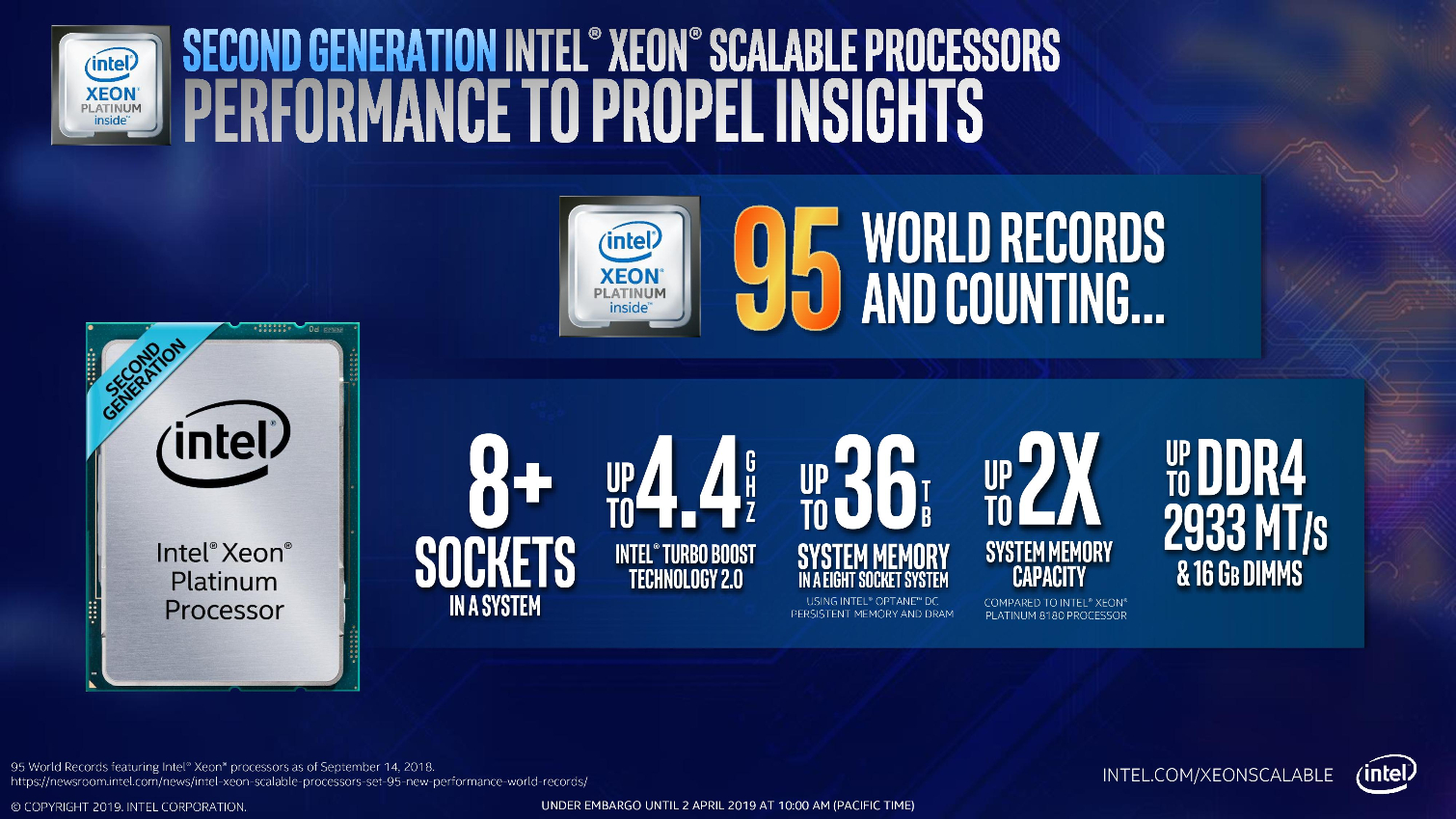
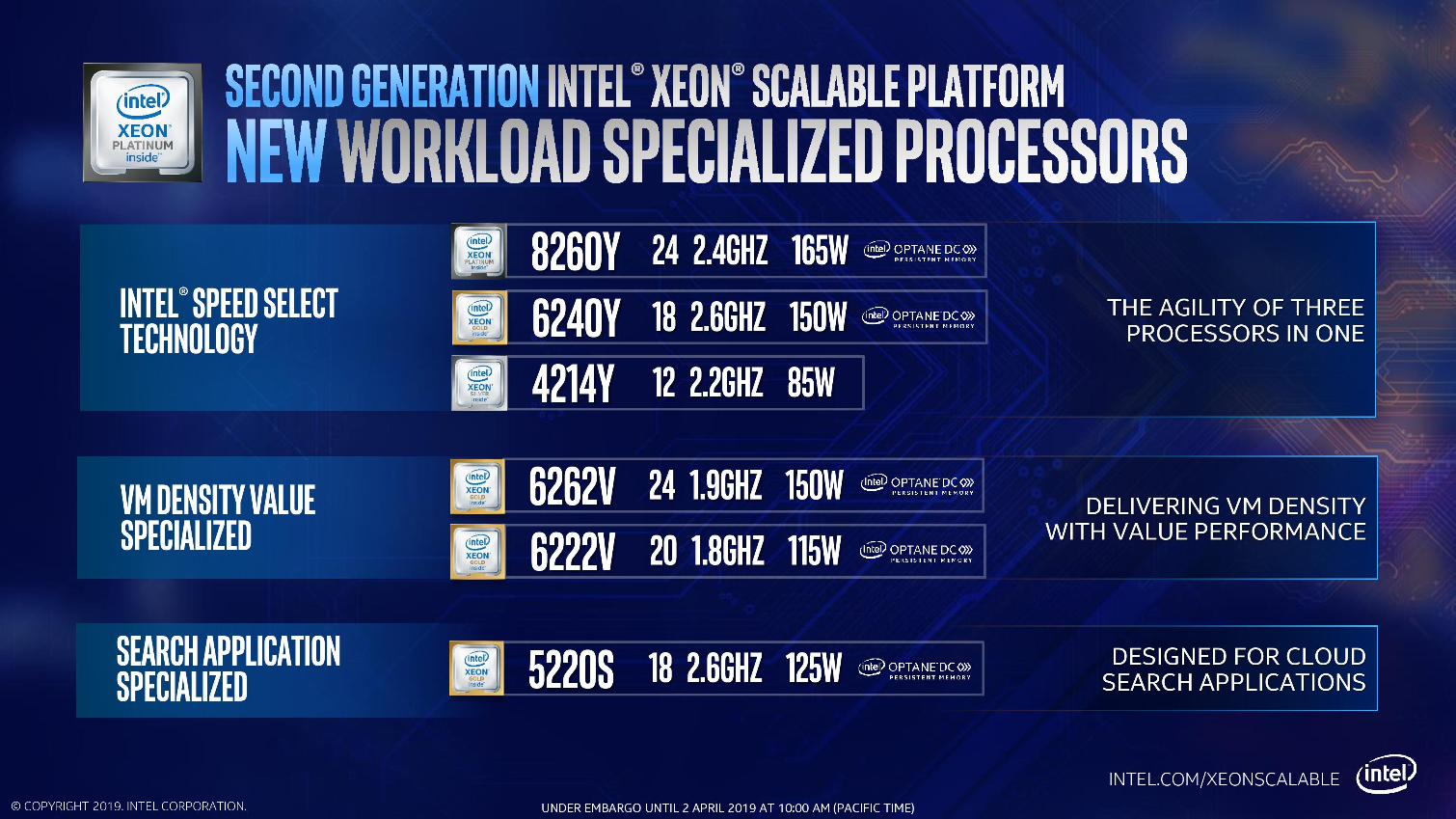

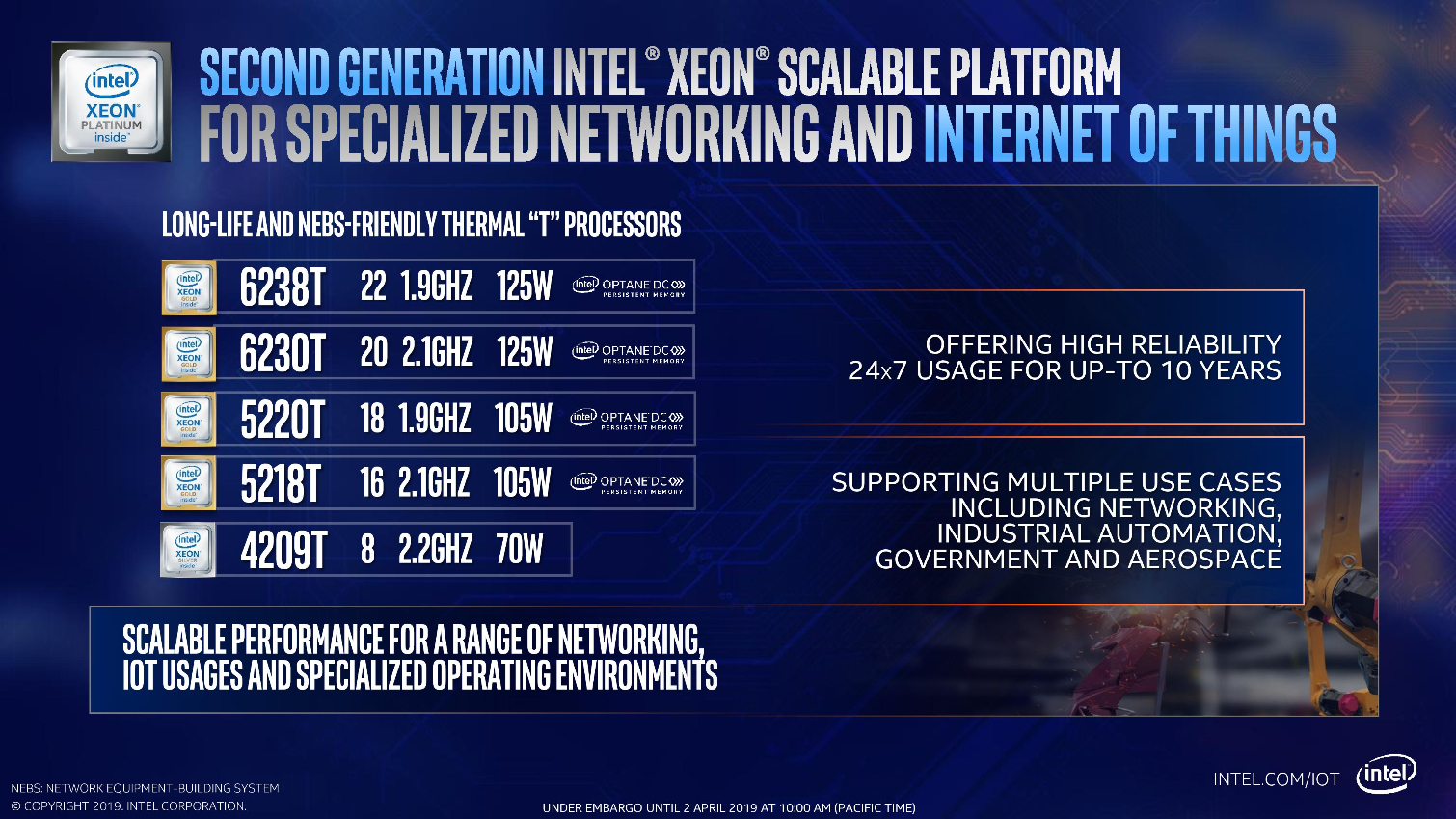


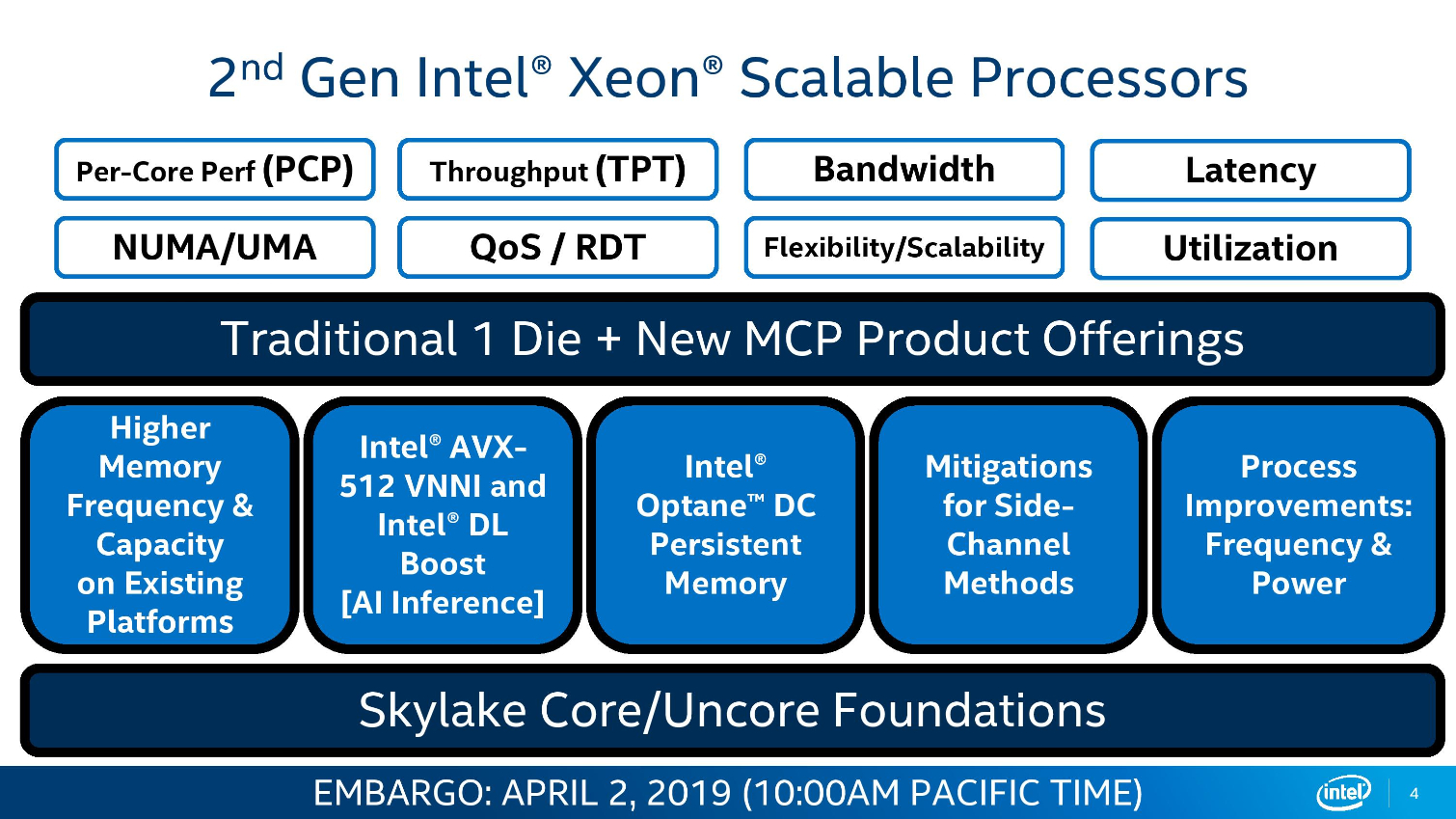
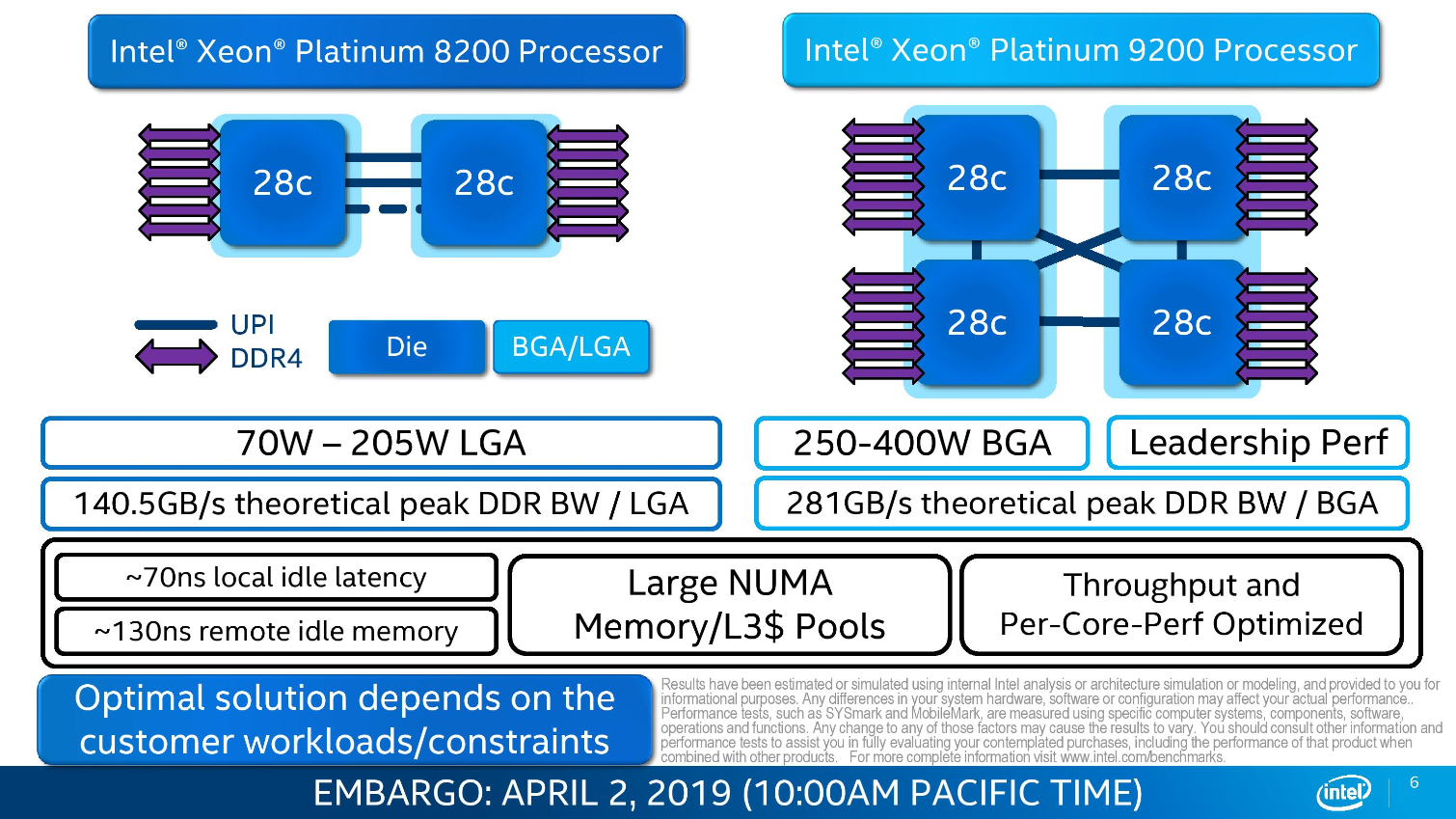

Intel's Cascade Lake lineup has grown tremendously with the addition of several new types of processors designed for specific use-cases, and the company continues to segment its stack into Platinum, Gold, Silver, and Bronze categories. However, now the Cascade Lake-AP processors that span up to 56 cores slot in as the ultimate tier of performance for the Platinum category, while the standard 8200-series Platinum models, which top out at 28 cores, are drop-in compatible with existing Xeon Scalable servers with the LGA 3647 socket.
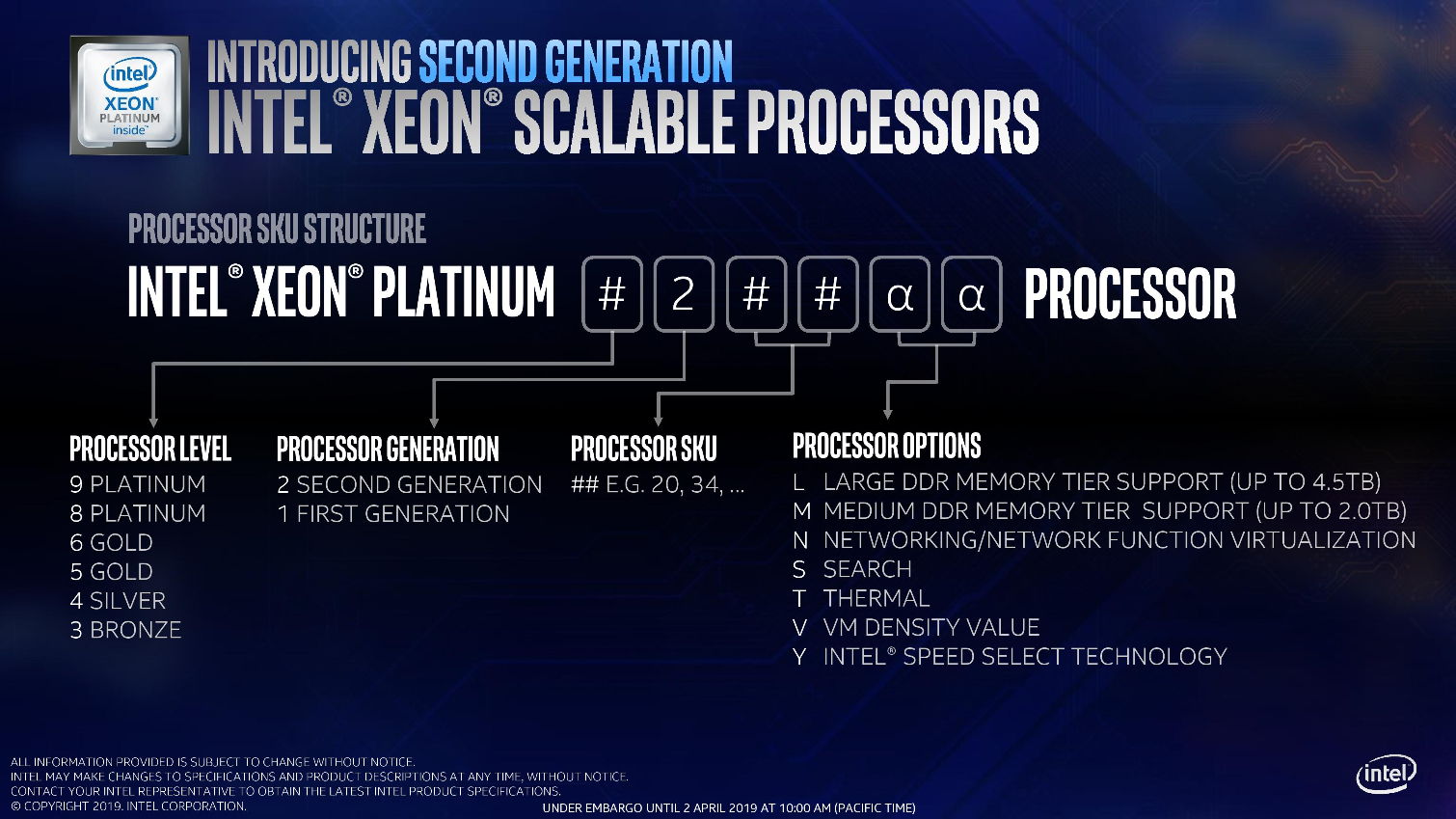
Intel also introduced new workload-specialized processors that have Intel's Speed Select technology. These processors allow for finer-grained control of the processors' frequency, such as assigning certain cores to work at a set frequency so that workloads targeted at certain cores (through affinity manipulations) experience a better overall quality of service, which boosts performance. Networking-optimized SKUs also forgo Turbo Boost entirely to eliminate sporadic bursts that introduce performance inconsistency.
Stay On the Cutting Edge: Get the Tom's Hardware Newsletter
Get Tom's Hardware's best news and in-depth reviews, straight to your inbox.
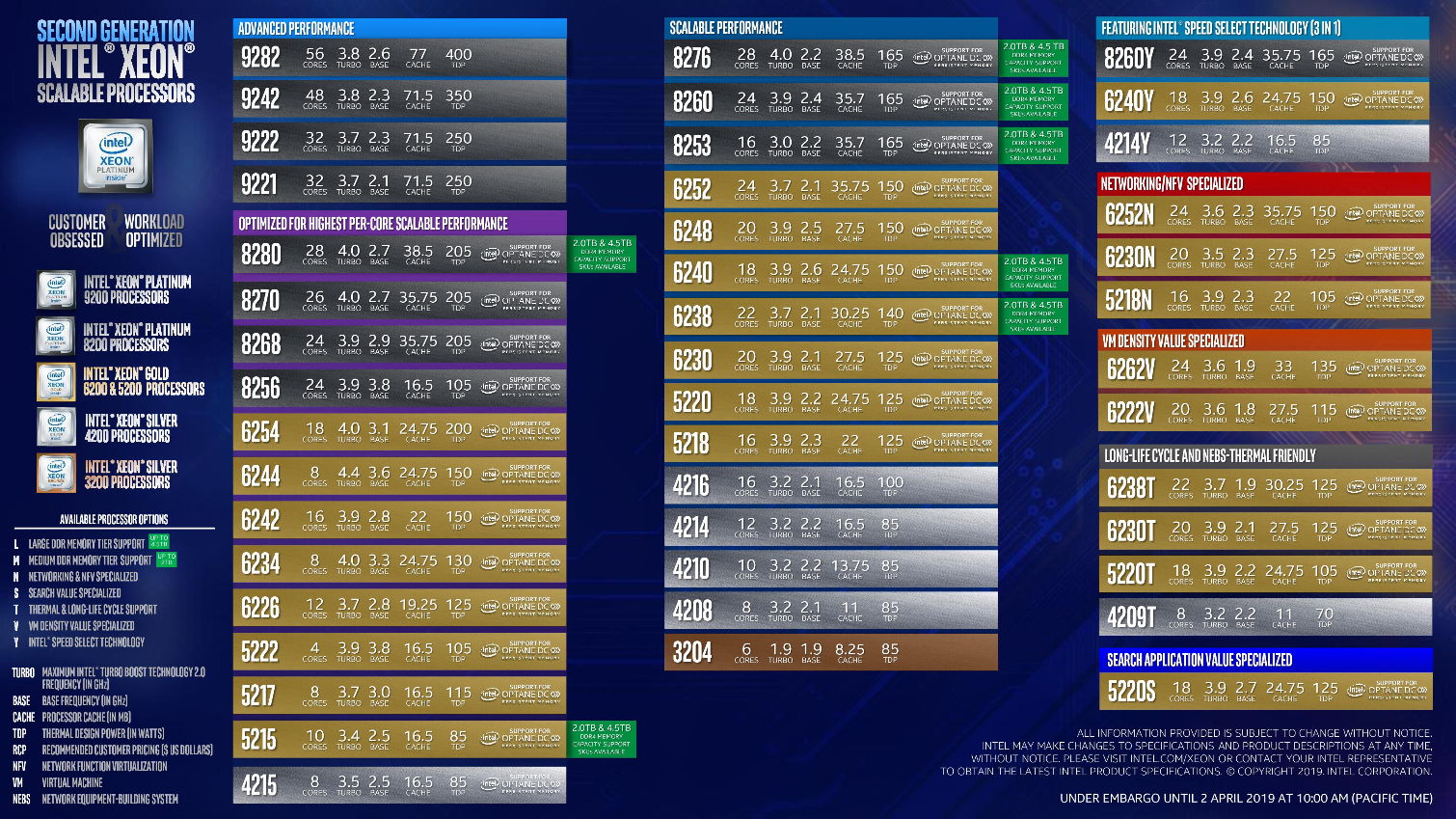
Intel segments its product stack through several variables, including core count, base frequencies, PCIe connectivity, memory capacity/data rates, AVX-512 functionality, Hyper-Threading, UPI connections, and FMA units per core. Intel also doesn't offer Optane Persistent DIMM support with some Bronze models. In other words, you pay every penny for every single feature you get.
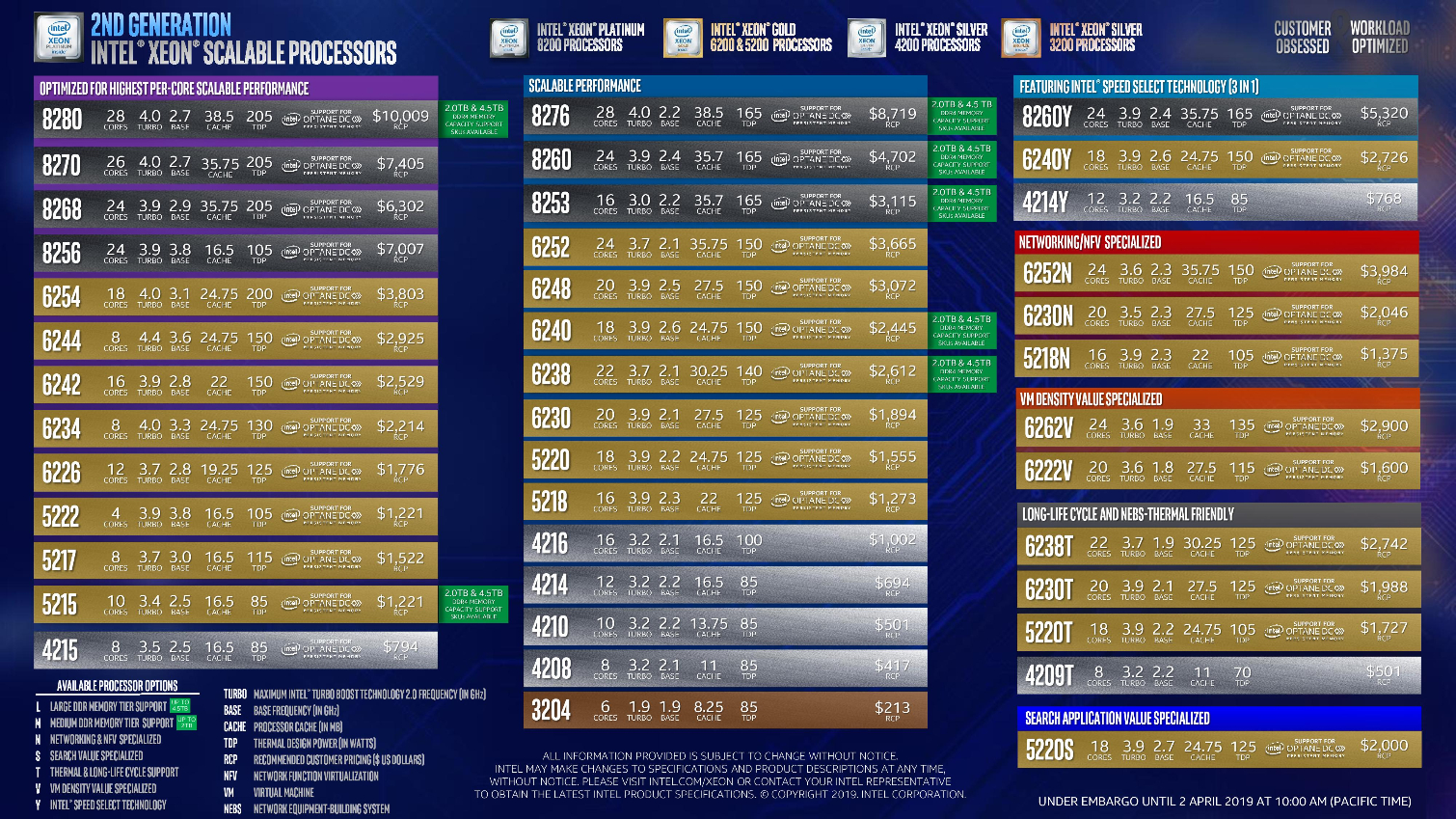
You'll notice that Intel hasn't released pricing for the exotic 56-core models, but that's because they only come in OEM systems. The flagship 8000-series processor, the Xeon Platinum 8280, weighs in at $10,009 per chip. The Platinum lineup dips down to $3,115 for the 8253 model, while the Gold family spans from $1,221 to $3,984 for the networking-optimized variant. Meanwhile, the Silver lineup spans from $417 to $1,002. As per usual, the 1K-unit tray pricing doesn't represent what the largest companies will pay after volume discounts.
Current page: Cascade Lake Xeon Platinum, Gold and Silver
Prev Page Cascade Lake and Friends Next Page Optane DIMMs Have Bright Prospects
Paul Alcorn is the Managing Editor: News and Emerging Tech for Tom's Hardware US. He also writes news and reviews on CPUs, storage, and enterprise hardware.